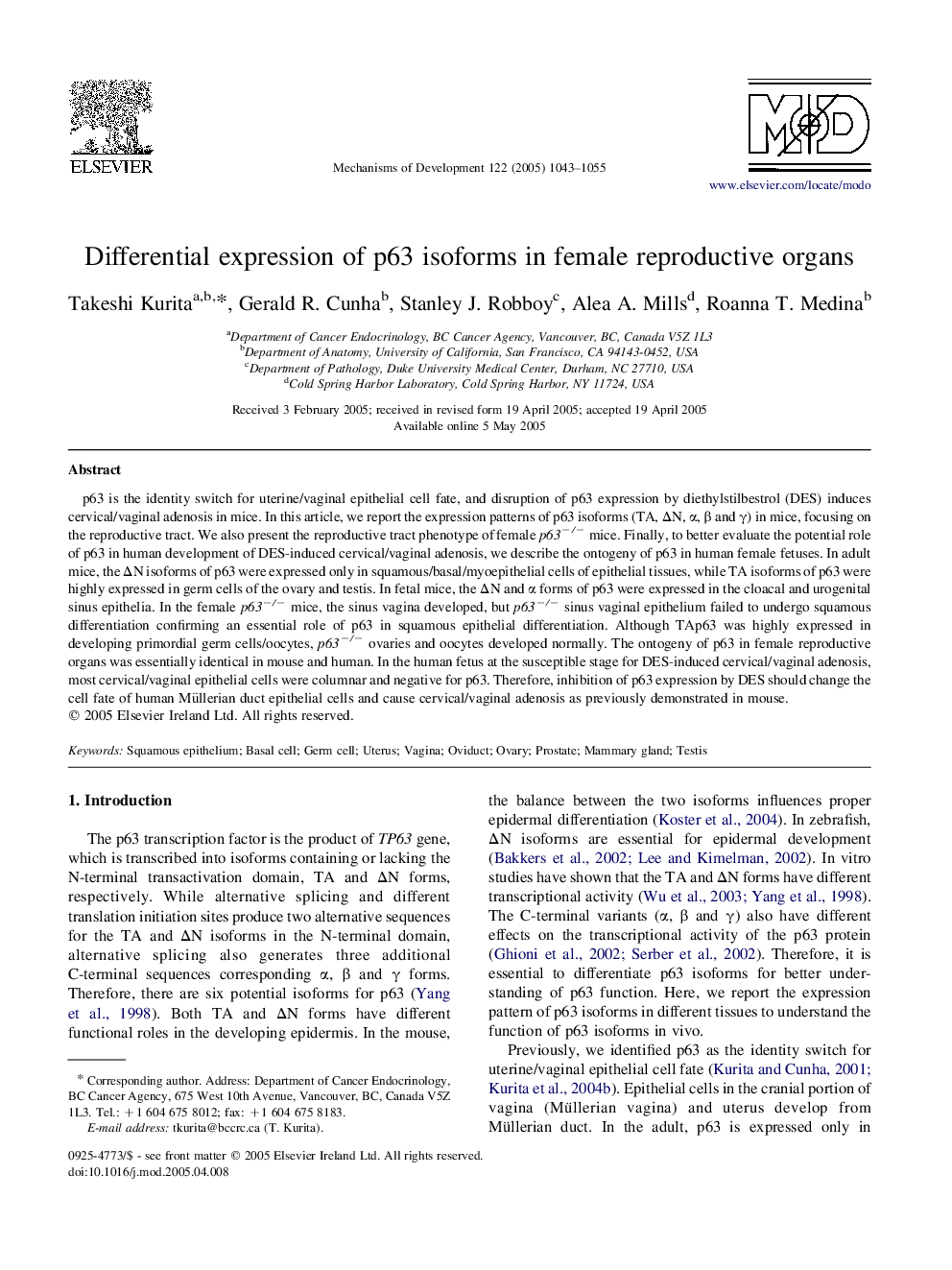| Article ID | Journal | Published Year | Pages | File Type |
|---|---|---|---|---|
| 9913620 | Mechanisms of Development | 2005 | 13 Pages |
Abstract
p63 is the identity switch for uterine/vaginal epithelial cell fate, and disruption of p63 expression by diethylstilbestrol (DES) induces cervical/vaginal adenosis in mice. In this article, we report the expression patterns of p63 isoforms (TA, ÎN, α, β and γ) in mice, focusing on the reproductive tract. We also present the reproductive tract phenotype of female p63â/â mice. Finally, to better evaluate the potential role of p63 in human development of DES-induced cervical/vaginal adenosis, we describe the ontogeny of p63 in human female fetuses. In adult mice, the ÎN isoforms of p63 were expressed only in squamous/basal/myoepithelial cells of epithelial tissues, while TA isoforms of p63 were highly expressed in germ cells of the ovary and testis. In fetal mice, the ÎN and α forms of p63 were expressed in the cloacal and urogenital sinus epithelia. In the female p63â/â mice, the sinus vagina developed, but p63â/â sinus vaginal epithelium failed to undergo squamous differentiation confirming an essential role of p63 in squamous epithelial differentiation. Although TAp63 was highly expressed in developing primordial germ cells/oocytes, p63â/â ovaries and oocytes developed normally. The ontogeny of p63 in female reproductive organs was essentially identical in mouse and human. In the human fetus at the susceptible stage for DES-induced cervical/vaginal adenosis, most cervical/vaginal epithelial cells were columnar and negative for p63. Therefore, inhibition of p63 expression by DES should change the cell fate of human Müllerian duct epithelial cells and cause cervical/vaginal adenosis as previously demonstrated in mouse.
Related Topics
Life Sciences
Biochemistry, Genetics and Molecular Biology
Cell Biology
Authors
Takeshi Kurita, Gerald R. Cunha, Stanley J. Robboy, Alea A. Mills, Roanna T. Medina,
